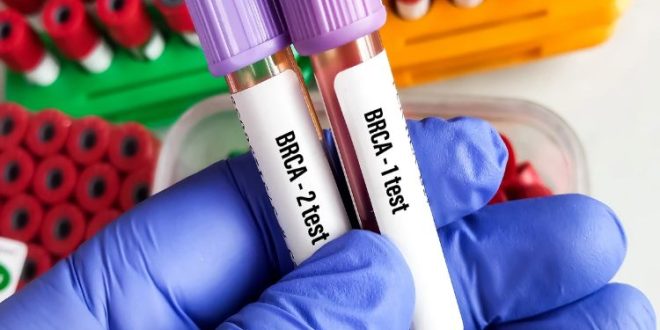The BRCA1 and BRCA2 testing look for inherited changes in the genes that can increase a person’s risk of developing certain cancers, and hence, one should prefer taking these tests if necessary. MedGenome offers a convenient blood test for these genes, enabling people to find out about their cancer risk and to make informed choices. However, many misconceptions surround BRCA testing, often creating unnecessary fear or hesitation. Let us look at them one after the other.
Myth: If I test positive, I will definitely get cancer
Fact: A person getting a positive result will not automatically develop cancer, though the risk increases. Certain studies have suggested that women with a BRCA1 mutation encounter a risk of breast cancer estimated somewhere about 55% 72% by 70 years of age, while those with BRCA2 mutations have a risk estimated between 45% and 69%. But “risk” means not “certainty.” The majority of those with these mutations never end up developing cancer.
Myth: If my test comes back negative, then I am totally free from being at risk
Fact: A negative result only rules out the known BRCA mutations, not the possibility of all cancers. If there is a known mutation in your family and you do not possess it, then your risk would reduce to average levels. But if no such mutation is known, that means your risks could still be caused by other yet unknown factors.
Myth: BRCA mutations skip generations
Fact: Genes do not skip generations. It may seem to be the case if nobody in the family has had cancer. But the mutation might have been quietly passed down. Not all carriers need to develop cancer; even if the disease may or may not have manifested itself in earlier generations, a mutation may have been passed.
Myth: BRCA mutates only in females or only through the mother
Fact: BRCA mutations affect men and women and are inherited from either parent. They do not discriminate against gender, nor do they see a single branch of your ancestry. Men carrying BRCA mutations may face a higher risk of prostate, pancreatic, and even male breast cancer.
Myth: BRCA mutations are limited to specific ethnicities
Fact: Mutations are for everyone. Consider that some ethnic groups simply contain more-mutated genes, like the Ashkenazi, in which roughly 1 in 40 is affected, but 1 in 300 is affected in all other populations taken together.
Why Is It Important?
If the test is positive, some options may include:
- Getting more frequent or earlier screening tests (for example, MRI, PSA testing)
- Taking some steps to lower the risk of developing cancer, surgery greatly reduces the risk, to an extent.
- Informing the family members who might want to get tested for the mutations.
- Using next-generation sequencing techniques, the Med Genome BRCA test accurately scans and identifies alterations across the entire BRCA1 and BRCA2 genes.
Conclusion
A positive BRCA result means an increased risk for cancer; however, it is not certain that one will get ill. A negative result does not mean “no risk” if the family mutation is unknown. These mutations do not skip generations; they have no gender nor side specificity, and they are found in every ethnic group.
 Naa Songs
Naa Songs




